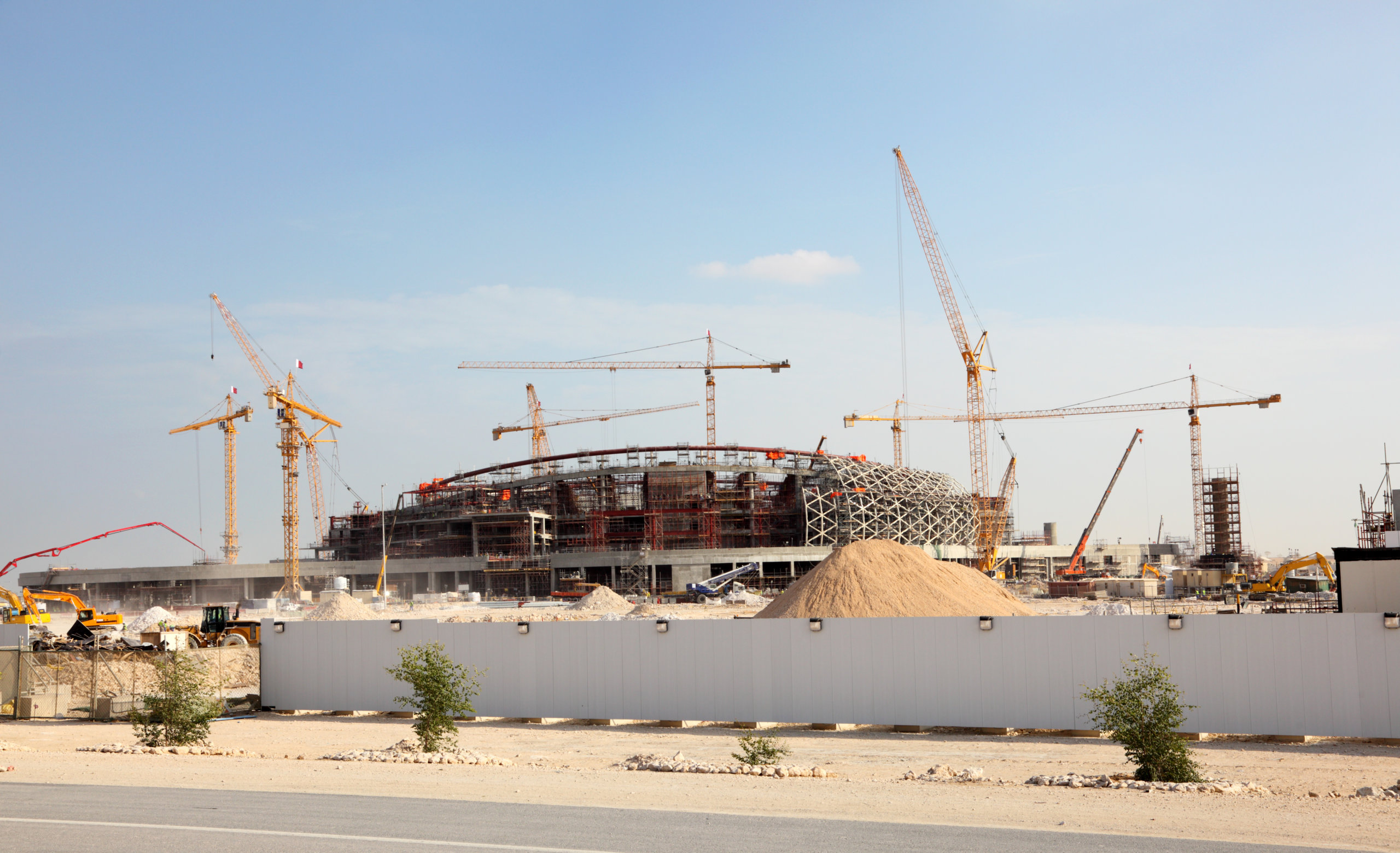Most of us can be thankful going to work is not a life-or-death decision
When making career choices, the likelihood of us dying on the job might not immediately spring to mind as a deciding factor – unless you are, for example, thinking about becoming a labourer on a Qatari football stadium development.
The forthcoming World Cup is already generating the least amount of enthusiasm in living memory – even among dedicated followers of the round ball game – but it has prompted us to consider some wider issues not normally associated with football.
Like human rights, the treatment of minorities, the shameless opportunism of David Beckham…and workplace mortality.
Asked to name the world’s deadliest jobs most of us would probably mention bomb disposal expert, lion tamer, stuntman or Saudi journalist before bricklayer or plasterer.
But if the governing elites of certain middle eastern dictatorships are remarkable for anything, it’s their relentless capacity to find new and creative ways to bump-off underlings for whom they have no further use.
A list of ‘dangerous jobs in Qatar’ listed on the Bayt employment website includes firefighter (fair enough), lifeguard (ditto), offshore UAV Pilot (health and safety, anyone?) and executive sous chef.
Sorry! Executive sous chef? Presumably that’s because one’s life expectancy becomes inversely proportional to the lateness of the Emir, Sheikh Tamim Bin Hamad al-Thani’s, lunch.
It does make one thankful to be living in Britain, where going to work is an altogether more predictable and less deadly enterprise.
There are, however, surprising exceptions, even here in dear old Blighty where some of the most hazardous occupations include refuse collection, painting and decorating and farming.
In the US, by comparison, aircraft pilots and flight engineers are near the top of the fatality league table by profession, while in India coal miners, sanitation workers and bodyguards take their lives in their hands every time they clock on for work.
Data collected by the Office for National Statistics found that more than 850 people in the UK have died at work in the past six years.
By far the most – 167 in total – worked in agriculture, with the majority of deaths caused by workers encountering heavy machinery and working from heights. Some 29 were killed by animals.
Around one in five workplace deaths are linked to accidents with heavy machinery, so it’s unsurprising that 101 people died on building sites. Half were a result of falling from heights but falling objects were also a major cause of death.
Across all professions, 29% of fatalities are due to falls with 69 people plunging from scaffolding, according to the statistics.
Other hazardous professions included lorry driving – 40 HGV drivers died on the roads during the period – joining and painting (falling from heights was, again, a big factor), and vehicle maintenance and repair.
Shockingly, some of the UK’s deadliest jobs are also among the worst paid. For example, refuse collectors earn a little over £17,500 per year, despite 20 collectors dying at work in six years.
While America also has high fatality rates in these sectors, its deadliest trade was among truck and sales drivers, 918 of whom died last year compared with 260 agricultural workers, 217 ground maintenance workers and 134 construction supervisors.
But if all those jobs make you think of barge poles and distance, spare a thought for the ship breakers of Bangladesh.
This back-breaking labour supports around 200,000 people who spend 16 hours a day breaking down massive tankers and cargo ships that are built to withstand the toughest of conditions for a few dollars a day.
Estimated to be the world’s most dangerous job, if you’re not killed by an explosion or stabbed by falling shards of steel, then the toxic fumes and asbestos will get you. In a single year 30 men will die breaking up a single ship. Many workers still in their twenties die of cancer.
Maybe lion taming doesn’t seem such a bad option after all.



